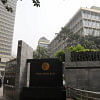Forex with banks on the decline

Foreign currencies held by commercial banks in Bangladesh are on the decline due to high demand, indicating growing pressure on the country's external sector.
At the end of April, the gross foreign exchange held by commercial banks stood at $5.04 billion, down 8.19 percent year-on-year, as per the latest data of Bangladesh Bank.
Also, April's figure is 7.21 percent lower compared to the previous month, when the banks collectively held foreign currencies amounting to $5.43 billion.
Forex holding by banks has fallen in recent months owing to high demand, slow remittance inflow and the depreciating trend of the local currency against the US dollar, as per industry insiders.
The remittance inflow in March stood at $1.99 billion, down 1.23 percent year-on-year.
Industry insiders said that Bangladeshi migrants send more money through unofficial channels than banking channels as the former method offers better exchange rates, thereby impacting remittance inflow.
However, Bangladesh Bank's recent initiatives are expected to help boost the country's forex reserves in the coming days.
On May 8, Bangladesh Bank opted to go for market-driven interest rates and exchange rates following the prescription of the International Monetary Fund (IMF).
As such, banks can fix Tk 117 per US dollar as a mid-rate under the new exchange rate system, called the crawling peg.
Before introducing the new exchange rate system, banks could offer a maximum of Tk 114.5 per US dollar, including the Tk 2.5 government incentive.
At the time, the unofficial rate was around Tk 120 to Tk 122 per US dollar.
Selim RF Hussain, chairman of the Association of Bankers Bangladesh, told The Daily Star that the flexible interest rate and exchange rate will help reduce capital flight from Bangladesh.
The forex shortage is a major challenge for the country and it started to intensify after the Covid-19 pandemic. Besides, Bangladesh's forex market became more volatile in 2022 as supply chain disruptions amid the Russia-Ukraine war elevated global commodity prices.
Bankers say mismanagement in the forex market, frequent policy changes by the central bank, and the gap between the official exchange rate and the unofficial one are also to blame.
The country's forex reserves have fallen by $24 billion since August 2021.
As of last Wednesday, the gross international reserves stood at $18.42 billion, which is just enough to pay for imports over three-and-a-half months.

 For all latest news, follow The Daily Star's Google News channel.
For all latest news, follow The Daily Star's Google News channel. 








Comments